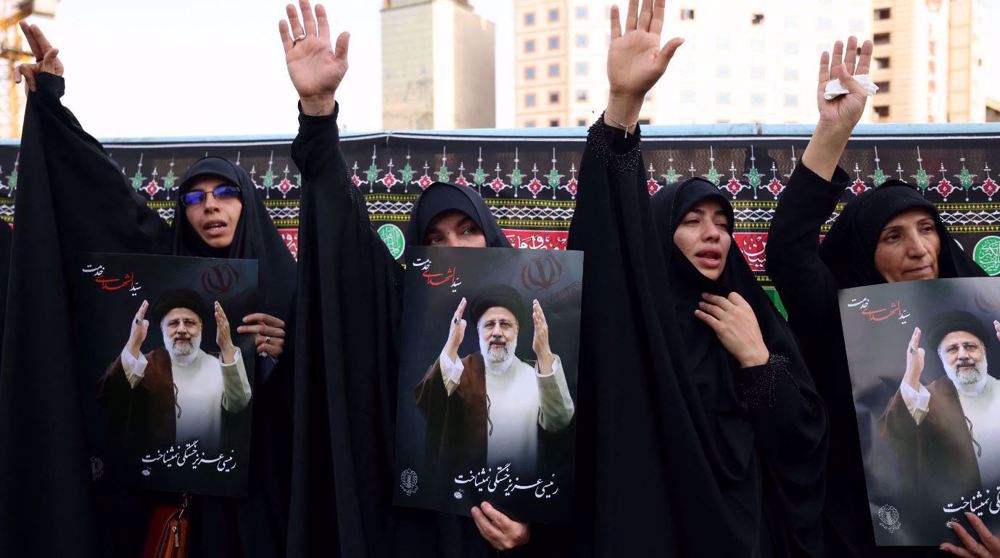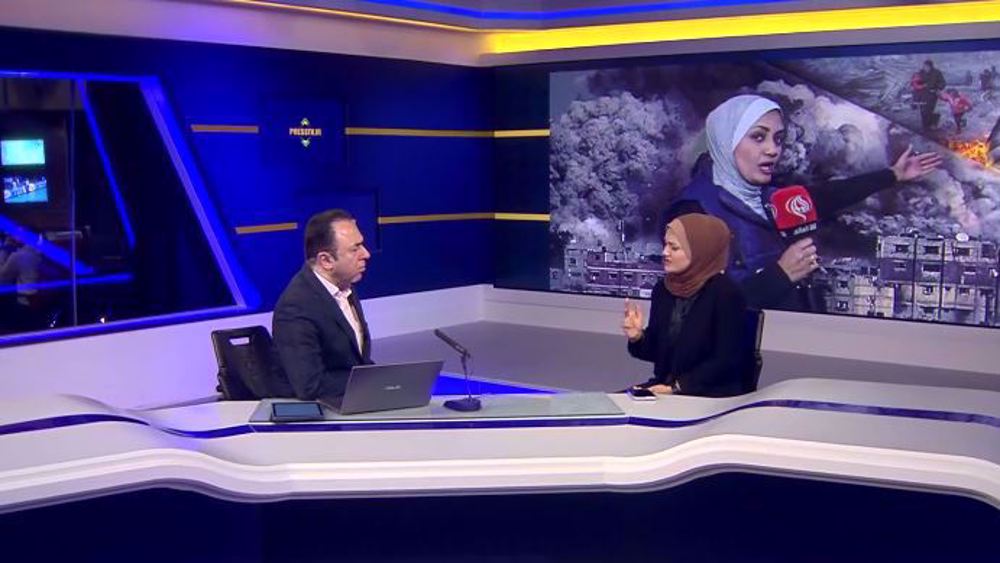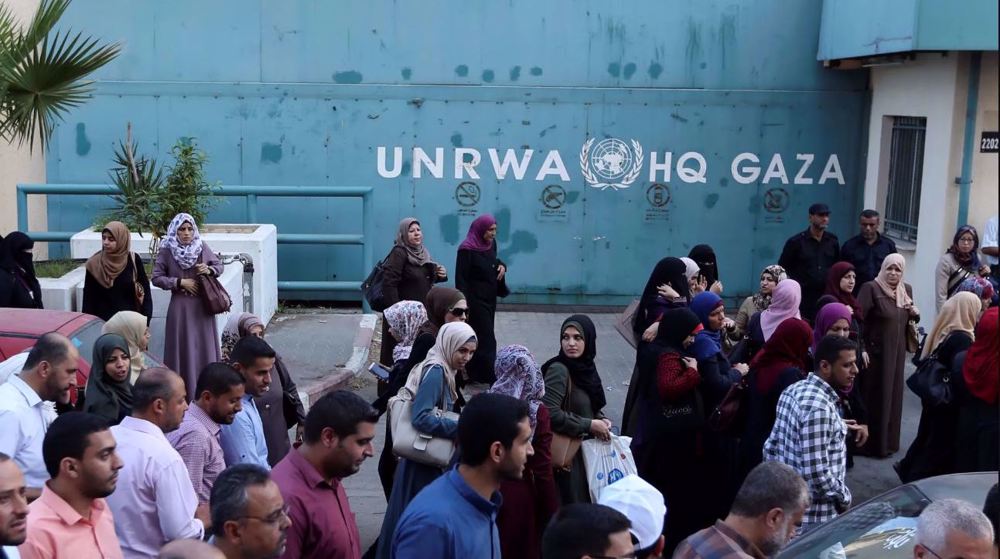Iran vote beneficial to democratization process: Analyst
Press TV has interviewed Kaveh Afrasiabi, an author and political scientist in Boston, to discuss the massive turnout in Iran’s elections.
The following is a rough transcription of the interview.
Press TV: You are sitting obviously in the US and I am wondering what kind of an influence do these elections have outside of Iran’s borders?
Afrasiabi: I think that the elections put the international spotlight on Iran as a country that is imbued with democratic qualities and enjoys a stable and orderly political system and massive popular support reflected in the outpouring of voters at the ballot boxes today. And therefore on the whole … Iran’s external image, can be interpreted as a very timely complement to the recent diplomatic successes of Iran and adds political and diplomatic capital to the government and foreign priorities of the Dr. Rouhani’s administration.
So on the other side of the coin is that Iran’s competitors in the region and beyond are dismayed by this massive expression of popular sovereignty in Iran today and as the Supreme Leader correctly stated the positive outcome in Iran is actually a disappointment to them.
So on the whole there is a splendid expression of democracy in action today and deepens the process of democratization in Iran and … that there is a repetition of these elections reinforces the democratic ethos of Iran and its image abroad.
Press TV: I am wondering you mentioned in your first answer about Iran’s competitors in the region as you have put it and I am wondering if we hone in on that issue, you talked about the likes of the Saudis for example, the Bahrainis and the Emiratis and the lack of democracy in those respective countries, all of those are of course US allied countries in the region. How much of an influence does these Iranian elections or consecutive Iranian elections that have been going on as Dr. Nashabi [the other guest of the program] there said even during war time, even when the imposed war on Iran by Iraq, how important a message does it send to the likes of those countries and to their peoples?
Afrasiabi: Hopefully it will send a message of hope and emulation for some of these countries that are light years behind Iran in terms of political modernization and are … the procedures for popular participation in their political processes and look at countries such as Saudi Arabia or the UAE that are championing the cause of elections and democracy and regime change in Syria while they themselves are closed political systems that are based on exclusionary elite monarchical and very archaic systems of ruler ship and Iran sets a very positive role model in the region particularly in the Persian Gulf region that is worthy of emulation because there is a great deal of desire and interest on the part of the people at the base of these societies for participation inclusion in the political process … which a lot of them have been unfortunately deprived of and a country like Bahrain where we see some movement in that direction is being brutally suppressed partly due to the Saudi intervention that continues until this day.
So I think that overall these elections in Iran set some regional standards and are beneficial to the broader democratization process in the region as a whole.
Press TV: So we have shown I think and we have proven that obviously the aspirations of the Iranian people are very important in all of its foreign policy decisions as well. How do you feel about how that plays out as Dr. Mojtahedzadeh and Dr. Nashabi [the other guests of the program] both have mentioned about in places for example like Syria?
Afrasiabi: As we know the Syrian government has just announced the schedule of parliamentary elections in April and with the truce that has been achieved at least on paper hopefully the groundwork will be prepared for this very crucial election that could signal the end of this bloody civil war that has raged on for the past four, five years and of course much depends on the follow of diplomacy by the world powers and regional powers and their ability to bring together the Syrian government and the political opposition for constructive national dialogue.
And the United Nations is playing a very constructive role and hopefully some of what we have seen in the past couple of days from Washington that reflects some counterproductive gestures such as President Obama calling for the removal of President Bashar al-Assad which is not really his business, no government leader should be in a position to call for the ouster of the leader of another government and they should respect Syrian national sovereignty. And hopefully that is just a fleeting gesture for public consumption and not a mark of US’s policy towards Syria.
So there is a lot of little but very important details that need to be worked out with respect to the near future developments in Syria and of course Iran has played a very constructive role not only as part of this international contact group on Syria but also in initiating the through Foreign Minister Dr. Javad Zarif in four-point position on the political transition in Syria, cause for a ceasefire followed by dialogue and then scheduling elections and so on and as we have seen in the recent conferences in Europe over Syria the Iranian position has been welcomed particularly by the European countries that have been hit by the tsunami of refugees.
So I think that the timing coincidence of the Iranian election and the coming Syrian election is a plus and it reinforces the international community’s image of Iran as a democratic country that has aspirations not only for itself but also for spreading the cause of democracy in the region including in Syria.
VIDEO | In Srinagar, people mourn martyrdom of Iran’s President Raeisi
VIDEO | Iranian Hajj pilgrims mourn beloved president, foreign minister
US police dismantle pro-Palestine encampment at Michigan University
Iranian Air Force chief visits families of crew martyred in crash
UNRWA suspends food distribution in Rafah amid Israeli invasion
VIDEO | Iranians in Tabriz hold mourning ceremony for President Raeisi
VIDEO | UN Security Council observes moment of silence in memory of President Raeisi
Ukraine says armed forces hit Russian cruise missile carrier in Crimea













 This makes it easy to access the Press TV website
This makes it easy to access the Press TV website